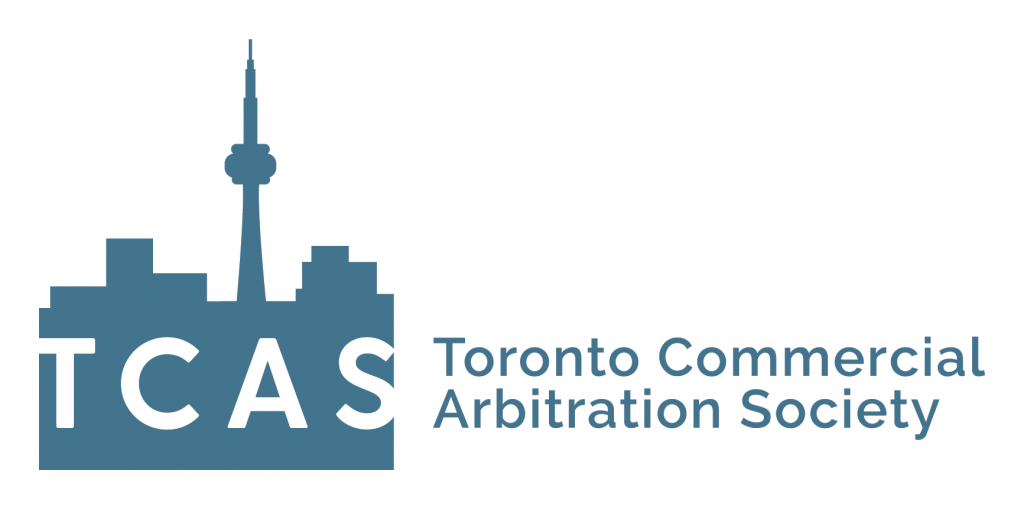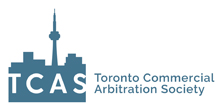On Being a Commercial Arbitrator: Lessons Learned
We all know why commercial parties choose to arbitrate – efficiency, confidentiality, party control over the process, ability to have a say in the make-up of the tribunal, finality and ease of international enforcement.
But commercial arbitration both international and domestic is under attack, as being too slow, too much like litigation, and too expensive. An excellent paper, and some suggested solutions, was given by Stephen Morrison on June 29, 2011 in the Arbitrator of the Month series at ASAP, and the ABA Section on Dispute Resolution is addressing the issue.[1]
U.S. in-house counsel very often opt for a jury trial in commercial cases, since juries don’t “split the baby”, the result is known on the last day of the trial and there are appeal rights. A senior in-house counsel recently asked me to comment on a list of prospective arbitrators. A key question was “will he or she tend to split the baby?” A yes answer would be fatal to the appointment.
I hope in this paper to provide some insight into how common pitfalls in commercial arbitration might be countered, based on my own lessons learned – sometimes the hard way, which is often the best way.
Here is an example of a hard lesson I learned in my first serious commercial arbitration, in which I was counsel.
It was a very large claim by Denison Mines against Ontario Hydro for significant compensation for the termination of a supply contract for uranium from the Elliott Lake Mine, when the mine had become uneconomical and was going to be shut down. In the first case decided under then newArbitration Act 1991, Denison got a stay of an action by Ontario Hydro for a declaration commenced by Ontario Hydro in the Superior Court[2], and the arbitration proceeded. The parties jointly agreed to appoint the recently retired former Chief Justice Brian Dickson as the chair of the three person panel. Denison considered that the interpretation of the termination provisions of the supply contract would turn on complex GAAP accounting principles which we thought were in our favour. We decided that our appointee should be a senior expert auditor. The problem was that every one of the (then) “big five” firms were either conflicted, or wanted to work for Ontario Hydro or its subsidiaries. None of the possible candidates from those firms were willing to be retained. So we had to go outside of them for an appointee. We found one who was knowledgeable, but completely unknown to the former Chief Justice. Ontario Hydro, on the other hand, appointed a very senior and accomplished corporate lawyer, a name partner in an establishment firm who was very well known to him.
It was a very long hearing, conducted as a full trial with production, discovery and hotly contested factual and expert evidence. Denison lost. I will never know if a different nominee for Denison could have made a difference, but the lesson I learned was that while it is not on to canvass a prospective nominee on the views that he or she might have on the issues to be arbitrated, among the qualities necessary when selecting a party nominee is that he or she be known, at least by reputation, to the chair of the panel, and be a person whose view will, at the very least, be respected and given weight by the chair.
Becoming an arbitrator
There are many things to consider when aspiring to become a commercial arbitrator or mediator, and many routes to the goal. In the 1990s, and even in the early years of the last decade, the domestic field was largely populated by retired judges, who are still an important group. But to be part of that group one has to first be appointed to the bench, and stay long enough to earn the pension, so that full time arbitrating is economically viable. That route is open only to a chosen few.
International commercial arbitrators were for a long time a relatively rare breed in Canada. It helped to be a former ambassador to the United Nations like Yves Fortier, or a senior federal cabinet minister like Marc Lalonde, and it certainly helped to be bilingual like both of them, or tri-lingual like Henri Alvarez. Recently, I saw a request for arbitrators who spoke Greek or Turkish. So if you have another language, exploit it. A recognized speciality in oil and gas litigation or information technology can lead to appointments.
There is a major investment of time and money to become well known in the international scene so as to get appointments from what was, and still is, an old boys (and increasingly girls) club. It can be done, but it is not easy, and it is expensive.
Many younger lawyers gain entry into this group by joining the arbitration group of one of the major firms in Paris, New York City and London, and work their way up.
Being a member of the LCIA, ICC Canada, the Chartered Institute of Arbitrators or ICDR are all important for a commercial arbitrator’s CV, but none translate into international appointments without significant exposure to the international market.
It is fair to say that few in Canada make their living as international commercial arbitrators, though many get such appointments from time to time.
The third route, the one that many of us follow, is to develop a reputation at the bar or in the profession as knowledgeable and experienced, often senior, and available for and interested in appointments. Much of what this group does is domestic, often North American, commercial arbitration, an area that is expanding, but perhaps not as fast as the number of lawyers seeking to enter the field as commercial arbitrators.
The one thing you cannot do is sit back and wait for the work to come.
So what is the lesson to be learned for most of us in that category? It is this. Don’t give up your day job in your firms as counsel in arbitrations, commercial litigation or appeals. Even senior and busy arbitrators who work out of firms keep their hand in counsel work.
A bonus is that what you learn sitting as an arbitrator about what works and what doesn’t, in the tactics and arguments of counsel appearing before you, is invaluable in a litigation practice.
Getting an appointment
Don’t get too excited by the first (or any) call. In my experience, the ratio between inquiries and retainers is one retainer out of 8 or 10 inquiries. First, you are not the only one called. Second, the call is ordinarily only from one party, and the other side may think you are unqualified. Third, there may be conflicts. Fourth, the supposed arbitration may be going nowhere or may be settled early. Fifth, the timing may not work for you.
So take the calls graciously, do the conflict search, but as I said earlier, keep your day job.
When you do get an appointment, whether as a member of a panel or sole arbitrator, consider the question of a deposit for estimated fees and what happens when the parties settle or otherwise cancel the arbitration. Appropriate provisions should be built into the retainer agreement. There is no one size fits all, since what is appropriate depends on the nature and expected length of the hearing. It is very difficult to deal with these issues after the fact. It is often wise to provide that all panel members bill at the same hourly rate.
Conflicts and disclosure
Conflicts are a separate issue. They are unavoidable unless you go solo or are a retired judge, also solo. But for the rest of us, especially those of us in a firm of any size, they are a constant bane.
But there is good news. The conflict issue for a prospective arbitration, still less for a mediation, is not the same as for the firm accepting a file. As an arbitrator or mediator, you are not acting for anyone. The retainer is personal to you, and not the firm. So as long as we personally have not acted for a party, the issue usually comes down to disclosure. On many occasions I have disclosed that one of my partners has acted for this or that party or this or that insurer, but I had no part in the file and know nothing about it. Especially if the file is no longer current, any potential conflicts are more often than not waived. Of course, the disclosure must be made to all parties, not just the party that called.
Nevertheless, conflict issues remain a major problem, exemplified most recently by Yves Fortier leaving Ogilvy Renault and Jack Marshall leaving MacLeod Dixon, after the merger of those two firms into Norton Rose.
The losing party often looks for ways to attack an award, especially where there is no right of appeal. Not infrequently, they search for a potential conflict that was not disclosed, and the jurisprudence is replete with some very unhappy examples. One recent cautionary tale in the UK involved a barrister arbitrator who was counsel on a completely unrelated matter for the solicitors representing one of the parties to the arbitration (but not involving the same partner), but did not disclose it to the other party. The attack failed, but it was a close run thing, and highly embarrassing.[3]
The other good news is that conflicts are an issue for all of us in firms, so one person’s conflict is another person’s opportunity.
One of the best appointments I ever had as arbitrator was in the Western Oil Sands matter, a huge arbitration involving over $1 billion, arising out of cost and time overruns on a new oil sands development in the Fort McMurray area. Well into the preliminary issues, after several important motions had been heard, one party discovered a potential conflict that the chair had failed to disclose. He was disqualified, and I was chosen to replace him. Two of the motions that the panel had heard had been decided on a two to one basis, so they had to be reheard, and the decision was different in at least one of them. The first chair’s failure to disclose created my opportunity, but it was certainly a lesson learned.
The initial phase
It is trite that there is only one chance to make a first impression. That is as true in arbitration as anywhere. The first conference is an opportunity to establish control over the arbitration, which should never be missed. It is wise to send out, in advance of the first conference, a detailed agenda of matters to be discussed. It can be very useful to have client representatives or in-house counsel at that meeting.
Two issues are key. Arbitration clauses are often woefully inadequate. So the opportunity must not be missed to at least try to redirect the parties to agree to a set of rules, modified as they wish, as close to the norm in international arbitrations as possible, that will lead to an efficient process with minimal production and discovery[4]. Harvey Kirsh calls this “Muscular Arbitration”[5]. At the very least, the arbitrator or panel should try to persuade the parties to a time limited discovery plan, and a document production regime whereby each party produces what it considers its relevant documents, and those called for by the other side. This can be a challenge when parties come from jurisdictions with different legal traditions.[6]
There are, nonetheless, some parties, primarily in domestic arbitrations, who want to have a private trial. While we as arbitrators have an obligation to do our best to dissuade them from it, and ensure they understand the consequences, we ought not to lose sight of the fact that there is party autonomy, that our jurisdiction stems from the agreement to arbitrate, and that we make our living as arbitrators. Conducting a private trial is not the worst thing, economically speaking, that can happen to a commercial arbitrator. But even in such a case, e-discovery especially must be managed efficiently.
The second, and the single most important thing, to be addressed early in the preliminary stage, and certainly raised in the first meeting, is the arbitration schedule. One of the principal reasons that parties choose arbitration is to obtain an early resolution. So it is very important that the arbitrator have time available in the next 6, 8 or 10 months to accommodate a hearing. The schedule should start with the dates to be fixed for the hearing, far enough in advance that it is achievable, and reserving enough days to be able to complete the hearing within the allotted time, with an agreement that the hearing will indeed be completed in that time, using sworn witness statements or evidence-in-chief and the time at the hearing appropriately divided to ensure that happens. The schedule for everything else is worked back from the hearing date. Not all of this can be accomplished in every case, or early in the case. But the attempt will establish the arbitrator’s authority and control and help set the tone for everything that follows. There is no reason whatever that even a complex commercial arbitration cannot be completed in under one year, start to finish, if the parties cooperate. If that does not happen, an arbitrator should make sure that the responsibility lies with the parties, not the arbitrator.
One of the great advantages that a commercial arbitrator has over a judge in litigation is that he or she is the case manager as well as the arbiter, a fact that acts as a wonderful discipline on counsel appearing. Rare is the counsel who wants to appear unreasonable before the ultimate judge of his or her client’s case.
One horror story for me was an oppression fight where a fixed time was not set for the hearing. Both sides ran out of money to pay their lawyers, but not out of hatred for each other. I had to complete the arbitration with both parties self represented. It was not pretty, and I won’t let that happen again.
There are three excellent reference papers that should be on every commercial arbitrator’s desk. One is the College of Commercial Arbitrations Guide to Best Practices in Commercial Arbitration. The second is the New York State Bar Association Guidelines for the Arbitrator’s Conduct of the Pre-hearing Phase of Domestic and International Commercial Arbitrations. The third is theGuidelines in Early Disposition of Issues in Arbitration, issued by the International Institute for Conflict Prevention and Resolution (CPR) in 2011. Most institutions have a guide or roadmap on how to run an efficient arbitration. A good textbook is invaluable. For Canadians, J. Brian Casey’sArbitration Law in Canada: Practice and Procedure, 2nd ed., 2011, JurisNet is a good choice.
Interim orders – speed and fairness
There are a myriad of interlocutory type motions that can arise in any but the most simple of commercial arbitrations – jurisdiction over some or all of the claims, an early legal interpretation that could affect the future course of the arbitration, and production or discovery disputes. Two important lessons here. The arbitrator or panel should hear those motions as soon as possible, and get the reasons out in a timely way, so the arbitrator or panel is not the cause of schedule creep. Often, the parties will agree that the chair of the panel hear and decide all procedural interlocutory motions, which should be heard and decided in a summary fashion. Second, we must never forget the duty of fairness that permeates commercial arbitration, explicit in UNICTRAL arbitrations and implicit in all others.
In the Western Oil Sands arbitration described earlier, a key motion involved third party production and discovery from the insurance broker who placed the “non traditional” policy of insurance for cost over-runs and delay, between Western and the consortium of European and Lloyds insurer respondents, and for one of the other co-venturers, also not a party. The negotiation of the insurance policy was done almost exclusively on behalf of Western by its broker with the representatives of the several insurers or syndicates. Those negotiations were a key issue in the arbitration, since the insurers pleaded misrepresentation and non-disclosure, voiding the policy. Without third party discovery of that broker, the insurers would have been at a significant disadvantage at the hearing, since they would have had no real production and discovery from Western, which took virtually no part itself in the negotiations towards the policy. Using a combination of analogy to the Alberta rules and the UNICTRAL rules applicable to the arbitration, the panel decided that third party discovery should be allowed, as a matter of fairness in the circumstances. The broker sought judicial review by the Alberta Queen’s Bench, which reversed our decision, on the basis that there was no jurisdiction to order third party discovery. A further appeal to the Alberta Court of Appeal unanimously restored it, using a fairness analysis as to the meaning of Article 27 of the UNICTRAL Rules[7]. Leave to appeal to the Supreme Court of Canada was denied, notwithstanding several affidavits filed on the leave to appeal application claiming that the whole sub-strata of international commercial arbitration would collapse if the Supreme Court did not review and reverse the decision. It didn’t, and international commercial arbitration somehow continued on without missing a step, as did the arbitration, which settled after many weeks of hearing.
Dissenting reasons
There is much literature on the subject. Particularly in international commercial arbitration, including UNICTRAL arbitration, where the rights of appeal are limited or non-existent, dissents are and should be rare, and if delivered at all, should be short.
I am less convinced that the same is true for domestic commercial arbitrations in Canada, where there generally is a right of appeal, a right which is increasingly widely interpreted by the courts, especially in British Columbia, and to a lesser extent Ontario, both jurisdictions where appeals of arbitration awards are common.
I have been involved in several cases where there have been dissents, including one memorable one where the two party appointees (of which I was one) agreed, and the chair dissented.
In one Ontario case in which I was a party appointee, the other party appointee, shortly after argument, came up with draft reasons well before the chair had prepared a draft, and the chair was inclined to adopt them. I disagreed with the result, the reasoning and the process, and dissented at some length. The matter was settled before the appeal was heard.
So while the rule is that the panel should strive to agree, and do so in a consultative process, the answer really is “it depends”.
Reasons
I find writing reasons one of the most challenging and enjoyable parts of the arbitration process. I like to write. When I was a junior lawyer I did quite a lot of it, as well as doing my own research. But that changed, and for the last many years as counsel I have spent much more time reviewing and redrafting the work of others. As an arbitrator, I do the writing myself, and I generally leave the research to the parties, since I think it is bad form to refer in the reasons to authorities that the parties have not mentioned (though I have occasionally done so on an issue that was argued), and it is very bad form to decide the case on an issue that was not raised or argued[8]. Absent authorization by the parties, I don’t think it is proper to use firm resources to conduct independent research. I keep a brief of the leading and most recent contractual interpretation cases, updated regularly, and have a good contract law text book handy.
Especially where there is a right of appeal, cogent reasons are important, and not just because one does not want to be reversed on the basis that the reasons were unintelligible or otherwise defective. (Being reversed is one thing, but being described by the courts as incompetent is not good for one’s marketing program.)
Parties are entitled to know why they won or lost. They are also entitled to have the reasons in a timely way, in my view 60 days from the conclusion of the hearing at the outside. Long reserves are not on, and bad for one’s reputation. In an arbitration where there is no appeal, I have sometimes asked parties if they want a summary disposition with limited reasons, which would be less costly. I have yet to be taken up on the offer.
Writing good reasons is hard work, time consuming and therefore expensive. In my case, I go through many drafts. Since I became an arbitrator and started writing reasons, I have formed a new respect for those judges who take the time to write good reasons.
One party is going to lose and not like it, so unless you have a clear guarantee of payment from counsel, it is wise to ensure that you have a sufficient deposit to cover the estimated cost of writing the reasons, not always easy to estimate in advance.
When the decision is by a panel, rather than a single arbitrator, it is invariably the chair who does the initial drafting, but in my experience there is extensive input from the other panel members. The end product is better for the input and the consultation, but it is definitely more expensive.
Conclusion
Becoming a commercial arbitrator is hard enough. Becoming a good commercial arbitrator is truly hard work, accomplished by trial and error, and often accompanied by bitter experience. We can always improve. As Somerset Maugham once said, “only a mediocre person is always at his best”. But the lessons learned through experience are never forgotten. And it is a very rewarding and satisfying line of work.
2013068.1
[1] The arbitration committee of the ABA Section of Dispute Resolution, through Edna Sussman and John Wilkinson, is in the process of completing a well documented brochure entitled “Benefits of Arbitration for Commercial Disputes” that deals with and meets these criticisms, to demonstrate that arbitration has many advantages over litigation in the courts.
[2] Ontario Hydro v. Denison Mines Ltd., [1992] O.J. No. 2948 (Gen. Div.)
[3] A v. B and X [2011] EWHC 2345 (comm.), Flaux, J.
[4] William G. Horton, “Discovery” in International Arbitration, Canadian Arbitration and Mediation Journal v. 20 No. 1, Spring 2011, p.26
[5] Harvey J. Kirsh, “Muscular Arbitration”, JAMS Global Construction Solutions newsletter (Winter 2012 issue) at p. 1. And the AAA is offering a six part Webinar in March 2012 on “Muscular Arbitration”.
[6] See J.L. McDougall “Trends in International Arbitration”, April 2007 Law Society of Upper Canada, Advanced Commercial Arbitration.
[7] Jardine Lloyd Thompson Canada Inc. v. Western Oil Sands Inc., 2005 ABQB 509, rev’d sub nom. Jardine Lloyd Thompson Canada Inc. v. SJO Catlin, 2006 ABCA 18, leave to appeal ref’d, [2006] S.C.C.A. No. 87
[8] For an interesting recent case where this occurred, see 1210558 Ontario Inc. et al. v. 1464255 Ontario Limited et al. [2011] OnSC 5810 per Wilton-Siegel, J.





